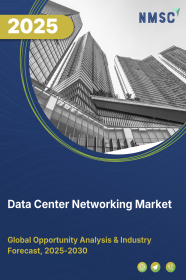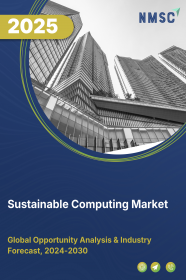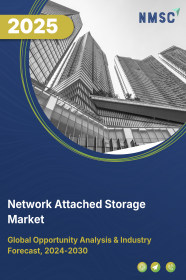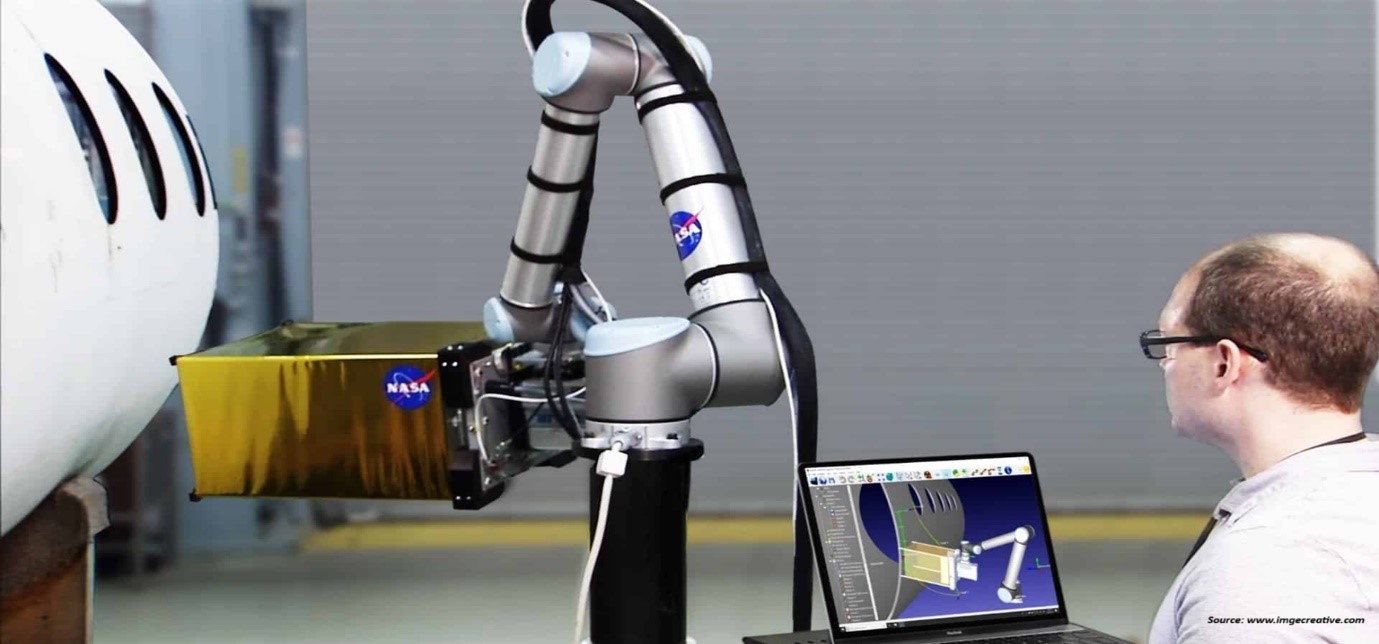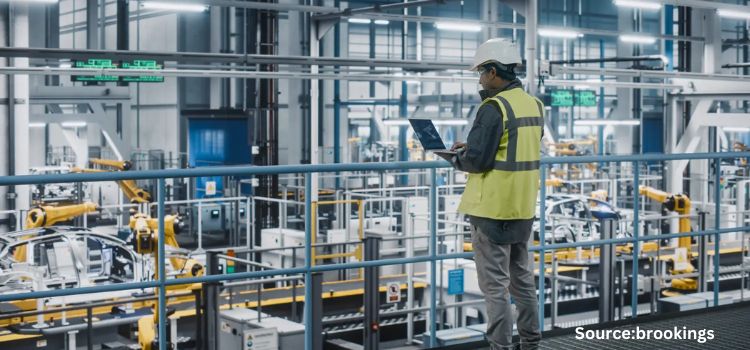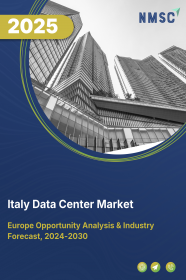
Italy Data Center Market by Infrastructure (Hardware, Software, Services), by Type (Enterprise Data Centers, and others), by Data Center Rating (Tier I, and others), by Size (Small Data Centers, and others), by Server Rack Density(<10kW, and others), by Data Center Redundancy(N+1, and others), by PUE Outlook (Less than 1.2, and others), by Design Outlook (Traditional, and others), by End User (Cloud Service Provider and others)- Opportunity Analysis and Industry Forecast, 2024–2030
Industry: ICT & Media | Publish Date: 03-Jul-2025 | No of Pages: 173 | No. of Tables: 158 | No. of Figures: 103 | Format: PDF | Report Code : IC2425
Italy Data Center Market Overview
The Italy Data Center Market size was valued at USD 3.46 billion in 2023, and is predicted to reach USD 5.60 billion by 2030, at a CAGR of 7.1% from 2024 to 2030. The data center market, also known as the network infrastructure market, encompasses the entire lifecycle of specialized infrastructure dedicated to hosting computing systems, including planning, construction, operation, and maintenance. It comprises a variety of components such as servers, storage systems, and networking gear, offering services such as cloud computing and connectivity solutions. Currently, the industry is experiencing widespread adoption of cloud services, alongside the emergence of edge computing to reduce latency.
Key trends include a focus on sustainability, heightened concerns about cybersecurity, the integration of hybrid and multi-cloud approaches, and the influence of 5G networks. These trends highlight the industry's response to the growing demand for scalable, efficient, and secure data processing and storage solutions in the era of digital transformation. According to the United States International Trade Commission, the data processing and storage market is projected to grow from USD 56 billion in 2020 to USD 90 billion by 2025.
Strategic Collaborations Propel Growth in Italy’s Data Center Market
Italy’s data center market is experiencing a significant surge, fueled by strategic collaborations among leading global and local technology companies. Industry giants such as Microsoft, Equinix, Digital Realty, and Rai Way are actively investing in infrastructure and policy-shaping initiatives to accelerate the sector’s evolution. These efforts have culminated in the formation of industry-focused alliances and associations that aim to establish Italy as a major hub for digital infrastructure in Southern Europe.
One of the central pillars driving this momentum is the unified focus on sustainable development and digital innovation. Companies are increasingly prioritizing energy-efficient operations, green data center designs, and integration with renewable energy sources to meet environmental goals and rising customer expectations. Simultaneously, there is a growing push for knowledge-sharing platforms and educational programs that upskill the workforce and align operational standards with international best practices.
As these collaborative efforts continue to gain traction, Italy is emerging as a strategic destination for data center investments. The country's geographical location, robust connectivity to key European markets, and increasing regulatory support create a favourable environment for growth. These initiatives not only bolster the competitiveness of Italy’s digital economy but also ensure long-term resilience and global relevance in a rapidly transforming technological landscape.
Telecom Sector Investments Accelerate Development of Italy’s Data Center Landscape
Italy’s data center market is gaining momentum as local telecommunications providers intensify efforts to expand their digital infrastructure. These companies are scaling up their networks to accommodate the rising demand for faster, more reliable data services driven by cloud computing, streaming, AI, and IoT adoption.
One of the key drivers of this growth is the deployment of advanced Edge computing infrastructure. By establishing distributed data facilities closer to end-users, telecom operators are reducing latency, increasing processing speeds, and improving service delivery across sectors. These next-generation data hubs are being strategically deployed nationwide to support real-time applications and ensure high-performance connectivity.
Beyond speed and capacity, sustainability is also at the core of these developments. Italian telecom firms are integrating eco-friendly technologies into their data centers, emphasizing energy efficiency and low-carbon operations to align with national and EU environmental targets.
These ongoing investments are not only expanding Italy’s digital capabilities but also positioning the country as a key player in Europe’s evolving data economy. As the demand for decentralized computing grows, local telecom-driven infrastructure will be crucial in ensuring scalable, secure, and future-ready digital services.
High Capital Requirements and Regulatory Pressures Challenge Italy’s Data Center Expansion
While Italy’s data center market shows strong growth potential, it faces notable challenges that could slow its pace. One of the primary obstacles is the substantial capital required to develop and operate modern data center facilities. From land acquisition and construction to advanced cooling systems and backup power infrastructure, the financial burden can be prohibitive—particularly for smaller players and new entrants.
In addition to high startup costs, operators must also navigate increasingly strict environmental regulations. Meeting sustainability goals requires continuous investment in green technologies, energy-efficient hardware, and renewable power sources. These compliance demands, while essential for long-term viability, add to the operational complexity and financial strain, especially in the early phases of development.
Together, these factors create a high barrier to entry and can limit market diversity, slowing the acceleration of new projects and innovation in the sector. Addressing these challenges through policy incentives, public-private partnerships, and streamlined regulatory processes will be key to unlocking the full potential of Italy’s data center ecosystem.
Edge Computing Unlocks New Growth Pathways for Italy’s Data Center Sector
Edge computing is rapidly emerging as a transformative force within Italy’s data center market, offering compelling opportunities for expansion and innovation. By enabling data processing closer to end-users, this decentralized model reduces reliance on core cloud infrastructure and significantly lowers latency—critical for next-generation applications such as IoT, augmented reality, autonomous systems, and real-time analytics.
This shift toward localized data handling enhances responsiveness, strengthens data privacy, and allows for more efficient use of bandwidth, particularly in regions with limited connectivity. For industries demanding real-time decision-making—like manufacturing, healthcare, and smart cities—edge infrastructure provides the agility and scalability needed to support complex workloads.
The growing focus on edge deployments is also attracting investor interest, particularly in tech startups developing hardware, software, and networking solutions tailored for edge environments. These investments highlight a strategic move to bridge the urban-rural digital gap and support Italy’s broader push for nationwide digital inclusion.
As demand for low-latency services rises, edge computing is set to become a cornerstone of Italy’s evolving data center ecosystem, offering a powerful lever for market differentiation and long-term growth.
Competitive Landscape
The key market players operating in the Italy data center industry include Aruba S.p.A., Equinix, Inc., Data4, Vantage Data Centers, STACK Infrastructure, Microsoft, Amazon Web Services, Inc., Rai Way S.p.A. , CyrusOne, Keppel Data Centres Pte Ltd, Telecom Italia Sparkle S.p.A., WIIT S.p.A., CDLAN SpA, Fastweb SpA, Seeweb and others.
Italy Data Center Market Key Segments
By Infrastructure
-
Hardware
-
IT Hardware
-
Servers
-
Storage Systems
-
Networking Equipment
-
-
Power Infrastructure Hardware
-
Uninterruptible Power Supplies (UPS)
-
Generators
-
Automatic Transfer Switches
-
Power Distribution Units (PDUs)
-
-
Mechanical Infrastructure Hardware
-
Computer-Room Air Conditioners (CRAC/CRA Units)
-
Chillers
-
Racks
-
Cable Management Systems
-
- Safety & Security Hardware
-
Fire Suppression Systems
-
Physical Security Systems (CCTV, access controls)
-
-
-
Software
-
DCIM & Monitoring
-
Automation & Orchestration
-
Backup & Disaster Recovery
-
Security Software
-
Virtualization Software
-
Analytics & Reporting Software
-
Other Software
-
-
Services
-
Planning & Professional Services
-
Site & Building Design
-
System/Infrastructure Engineering
-
Professional Advisory (compliance, energy audits)
-
-
Integration & Deployment Services
-
Electrical & Mechanical Installation
-
Commissioning & Acceptance Testing
-
-
Operation & Support Services
-
Preventive & Corrective Maintenance
-
Facilities Management / Remote Monitoring
-
Support Services (helpdesk, onsite SLA support)
-
-
Hosting & Managed Services
-
Colocation & Cloud Hosting Services
-
Virtual/Private Hosting Platforms
-
-
By Type
-
Enterprise Data Centers
-
Colocation Data Centers
-
Cloud Data Centers
-
Hyperscale Data Centers
-
Edge Data Centers
-
Micro Data Centers
-
Others
By Data Center Rating
-
Tier I
-
Tier II
-
Tier III
-
Tier IV
By Size
-
Small Data Centers
-
Med-sized Data Centers
-
Large Data Centers
By Server Rack Density
-
<10kW
-
10-19kW
-
20-29kW
-
30-39kW
-
40-49kW
-
>50kW
By Data Center Redundancy
-
N+1
-
2N
-
N+2
-
N
By PUE Outlook
-
Less than 1.2
-
1.2 - 1.5
-
1.5 - 2.0
-
Greater than 2.0
By Design Outlook
-
Traditional
-
Containerized
-
Modular
By End User
-
Cloud Service Provider
-
Technology Provider
-
Telecom
-
Healthcare
-
BFSI
-
Retail & E-commerce
-
Entertainment & Media
-
Government
-
Energy
-
Others
Key Players
-
Aruba S.p.A.
-
Equinix, Inc.
-
Data4
-
Vantage Data Centers
-
STACK Infrastructure
-
Microsoft
-
Amazon Web Services, Inc.
-
Rai Way S.p.A.
-
CyrusOne
-
Keppel Data Centres Pte Ltd
-
Telecom Italia Sparkle S.p.A.
-
WIIT S.p.A.
-
CDLAN SpA
-
Fastweb SpA
-
Seeweb
REPORT SCOPE AND SEGMENTATION:
|
Parameters |
Details |
|
Market Size in 2023 |
USD 3.46 Billion |
|
Revenue Forecast in 2030 |
USD 5.60 Billion |
|
Growth Rate |
CAGR of 7.1% from 2024 to 2030 |
|
Analysis Period |
2023–2030 |
|
Base Year Considered |
2023 |
|
Forecast Period |
2024–2030 |
|
Market Size Estimation |
Billion (USD) |
|
Growth Factors |
|
|
Companies Profiled |
15 |
|
Market Share |
Available for 10 companies |
|
Customization Scope |
Free customization (equivalent up to 80 working hours of analysts) after purchase. Addition or alteration to country, regional, and segment scope. |
|
Pricing and Purchase Options |
Avail customized purchase options to meet your exact research needs. |

















 Speak to Our Analyst
Speak to Our Analyst



